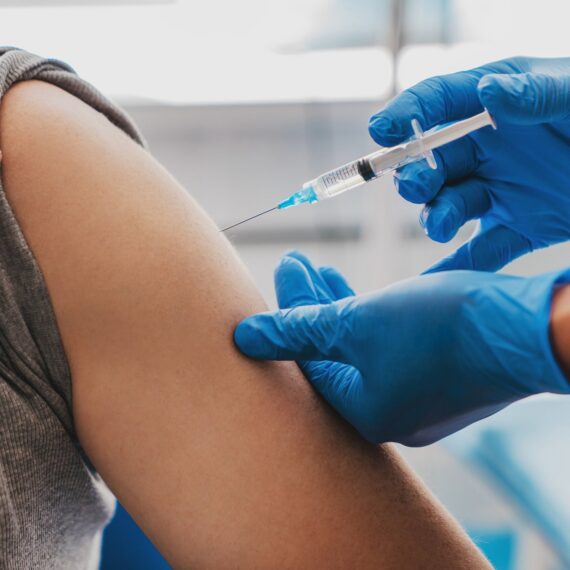Breakthrough in Developing Effective Ebola Vaccine
One of the deadliest viruses known to mankind has been Ebola. Since its discovery in 1976 in Africa, multiple outbreaks of Ebola have resulted in high mortality rates. However, after years of intensive research, scientists have now developed an effective vaccine against Ebola.
History of Ebola Outbreaks
The first recorded outbreak of Ebola virus disease was in 1976 near the Ebola River in what is now the Democratic Republic of the Congo. Since then, sporadic outbreaks have occurred in Central and West Africa. Some of the major epidemics include:
– 1995 Ebola outbreak in Democratic Republic of Congo – 315 cases, 244 deaths
– 2000-2001 Uganda outbreak – 425 cases, 224 deaths
– 2014-2016 West Africa epidemic – Over 28,000 cases, Over 11,000 deaths
The 2014-2016 West Africa epidemic was the largest and most complex Ebola outbreak since the virus was first discovered. It primarily affected Guinea, Liberia, and Sierra Leone and also saw some cases in Nigeria, Senegal, Spain, the United Kingdom and the United States. The high mortality rates and rapid spread highlighted the need for an effective vaccine against Ebola.
Development of an Ebola Vaccine
As there was no licensed vaccine for Ebola, researchers had to start from scratch to develop a safe and effective vaccine. Some of the key developments in Ebola vaccines research included:
– Several candidate vaccines were tested in non-human primates from 2000 onwards which showed promise in generating immune responses and protecting animals from the disease.
– A DNA-based vaccine was developed by the U.S. Army in 2003 which protected non-human primates from Ebola infection.
– A replication-deficient adenovirus serotype 26 vectored vaccine was developed by researchers from Canada which showed 100% protection in non-human primates.
– A recombinant vesicular stomatitis virus-based vaccine developed by researchers from the U.S. provided complete protection in multiple animal studies.
– Phase 1 clinical trials of several candidate vaccines including the VSV, DNA and adenovirus vectored vaccines showed good tolerability and immunogenicity starting from 2015.
Regulatory Approval of rVSV-ZEBOV Vaccine
Amongst the various candidates, the most advanced was the recombinant vesicular stomatitis virus-based vaccine (rVSV-ZEBOV) developed by Merck. In a large Phase 3 clinical trial conducted during the 2014-2016 West Africa outbreak, the vaccine demonstrated nearly 100% efficacy in over 16,000 individuals.
Based on these compelling efficacy results, the rVSV-ZEBOV vaccine received regulatory approval from the European Medicines Agency in July 2019 under the name Ervebo. In October 2019, the World Health Organization (WHO) also recommended the use of rVSV-ZEBOV vaccine during Ebola outbreaks. This marked a major milestone as it became the first vaccine to receive regulatory approval for the prevention of Ebola virus disease.
Implications of an Approved Ebola Vaccine
The availability of an approved Ebola vaccine is expected to significantly reduce illness and death during future outbreaks. Some of the key implications are:
Faster Response: The vaccine allows for a prompt and targeted response during outbreaks which helps curtail the rapid spread of the disease. Contacts and contacts of contacts can now be vaccinated quickly.
Decreased Deaths: Mass vaccination campaigns help create “ring” immunity around cases which reduces onward human to human transmission. This brings down the case fatality rates to below historic epidemic averages.
Control of Outbreaks: By vaccinating contacts and areas at high risk, the geographical spread of outbreaks can potentially be contained earlier before they escalate into large epidemics.
Improved Trust: The availability of a safe and protective vaccine has helped build confidence in communities and increased acceptance of public health interventions during response efforts.
Development of Stockpiles: International health agencies are working on deployment and stockpile strategies to guarantee supply and equitable access during future outbreaks globally.
After decades of effort, scientists have successfully overcome one of the biggest challenges in developing an effective vaccine against Ebola virus disease. The approved rVSV-ZEBOV vaccine offers hope to significantly reduce illness and death during future outbreaks. Ongoing surveillance and rapid deployment will be essential to fully realize the benefits of this lifesaving vaccine in containing and eliminating Ebola outbreaks.
Note:
1. Source: Coherent Market Insights, Public sources, Desk research
2. We have leveraged AI tools to mine information and compile it

